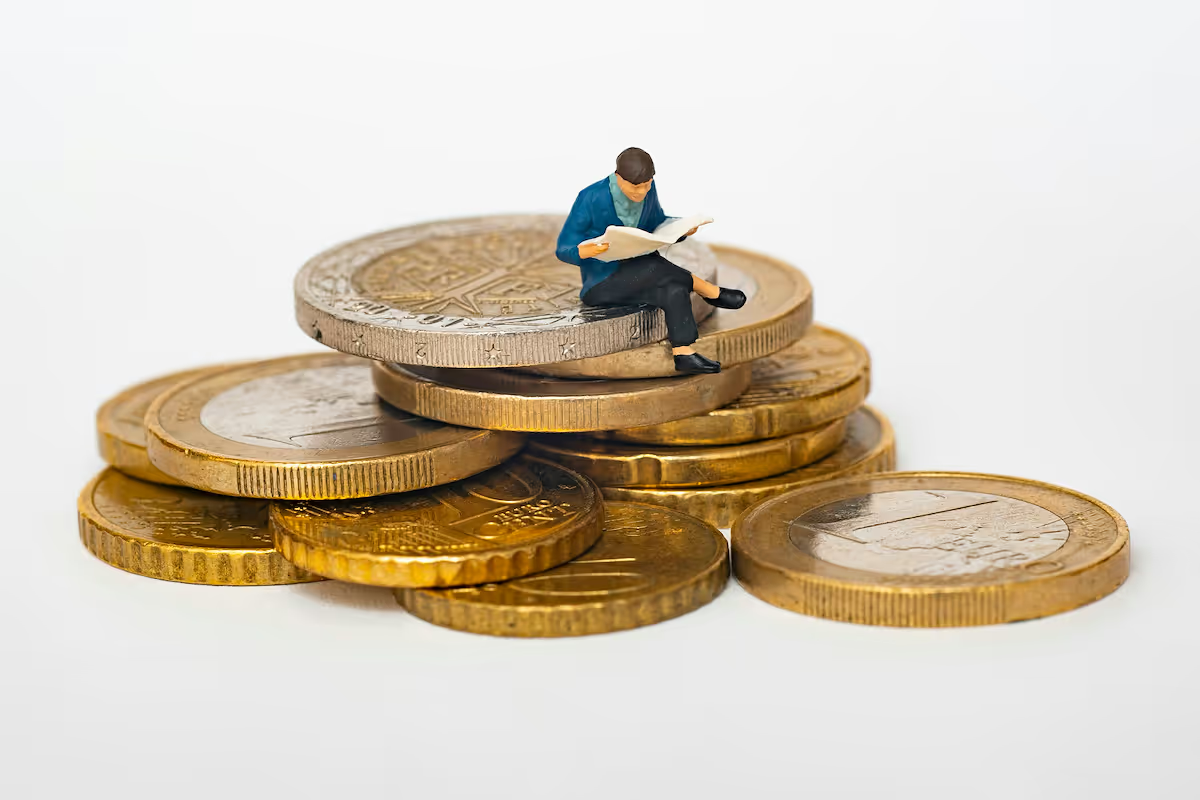
Kudos has partnered with CardRatings and Red Ventures for our coverage of credit card products. Kudos, CardRatings, and Red Ventures may receive a commission from card issuers. Kudos may receive commission from card issuers. Some of the card offers that appear on Kudos are from advertisers and may impact how and where card products appear on the site. Kudos tries to include as many card companies and offers as we are aware of, including offers from issuers that don't pay us, but we may not cover all card companies or all available card offers. You don't have to use our links, but we're grateful when you do!
Does the Economy Affect Your Credit Score?
July 1, 2025


Quick Answers
The state of the economy does not directly influence your credit score, as scoring models only evaluate your personal credit history and financial habits.
However, economic downturns can indirectly harm your score if they lead to financial instability, causing missed payments or higher credit utilization.
Conversely, a strong economy can create favorable conditions for you to improve your score by enabling consistent debt management and on-time payments.
What Is the Economy?
The economy is the large-scale system of how goods and services are produced, distributed, and consumed within a country or region. It encompasses all the financial activities of individuals, businesses, and governments, creating a complex web of transactions. The overall health of this system is typically measured by key indicators like Gross Domestic Product (GDP), inflation, and employment rates.
These broad economic trends have a direct impact on your personal finances and, consequently, your credit score. For example, high inflation can reduce your purchasing power, making it harder to manage debt and pay bills on time. Since your payment history is a significant factor in credit calculations, the state of the economy can influence your ability to maintain a strong credit profile.
How Economic Changes Can Impact Your Credit Score
The broader economy doesn't directly influence your credit score, but its ripple effects can. Economic shifts often trigger a chain reaction that ultimately puts your financial standing and score at risk.
- Economic Downturns and Job Insecurity: A slowing economy or recession can lead to company layoffs and higher unemployment. This instability can directly impact your income, making it difficult to keep up with financial commitments.
- Increased Financial Strain: With a reduced or lost income, covering essential expenses and debt payments becomes a challenge. Simultaneously, high inflation can increase the cost of living, further squeezing your budget.
- Late or Missed Payments: Financial pressure is a leading cause of missed payments on loans and credit cards. Since payment history is the most significant factor in your credit score, even one late payment can have a negative impact.
- Higher Credit Utilization: To make ends meet, you might rely more heavily on credit cards, driving up your credit utilization ratio—the amount of credit you're using compared to your total limit. A high ratio can lower your score.
How Much Will the Economy Affect Your Credit Score?
While the economy doesn't directly change your credit score, its indirect effects can be significant. Here are a few key areas where economic shifts can impact your credit health:
- Job Loss or Reduced Income. Economic downturns can lead to job instability or lower pay. This financial strain may cause missed payments, which directly harms your credit score.
- Interest Rate Changes. When the economy shifts, central banks often adjust interest rates. Higher rates increase your monthly payments on variable-rate debt, potentially straining your budget and credit.
- Tighter Lending Standards. In a weak economy, banks may tighten their lending standards. This can make it harder to obtain new credit, which can affect your credit mix and score.
How You Can Avoid the Economy Affecting Your Credit Score
Prioritize Timely Payments
Consistently paying your bills on time is the most significant factor influencing your credit score. Even during economic downturns, prioritize these payments. Set up automatic transfers or calendar reminders to ensure you never miss a due date, providing a strong defense for your financial health.
Manage Your Credit Utilization
Keep your credit card balances low relative to your credit limits. High utilization can signal financial distress to lenders and negatively impact your score. Aim to use less than 30% of your available credit, as this demonstrates responsible borrowing habits during uncertain economic times.
Build an Emergency Fund
An emergency fund acts as a crucial buffer against unexpected job loss or expenses. Having three to six months of living costs saved can prevent you from relying on credit to cover emergencies, which helps maintain low balances and avoid accumulating high-interest debt.
Ways to Improve Your Credit Score
Improving your credit score is an ongoing process, but with consistent effort and positive financial habits, you can boost your creditworthiness. While it takes time, there are several proven methods you can use to see meaningful changes, typically within three to six months.
- Monitor your credit reports. Regularly check your reports from Experian, TransUnion, and Equifax to identify and dispute any inaccuracies that could be dragging down your score.
- Establish automatic bill payments. Payment history is the most significant factor in your score, so setting up automatic payments ensures you never miss a due date.
- Reduce your credit utilization ratio. Aim to keep your balance below 30% of your credit limit, as high utilization can negatively impact your score.
- Become an authorized user. Being added to an account with a long history of on-time payments and low utilization can help build your own credit profile.
- Diversify your credit mix. Having a variety of credit types, such as credit cards and installment loans, shows lenders you can responsibly manage different kinds of debt.
- Limit hard inquiries. Applying for too much new credit at once can temporarily lower your score, so space out applications and use prequalification tools when possible.
The Bottom Line
The economy doesn't directly change your credit score, but its influence on your personal finances can. Ultimately, how you manage payments and debt during economic shifts is what impacts your score.
Frequently Asked Questions
Can a recession directly lower my credit score?
A recession itself doesn't directly impact your score. However, economic hardships like job loss can lead to missed payments, which will lower your score.
How do interest rate hikes affect my credit?
Rising interest rates increase borrowing costs, especially for variable-rate debt. This can make payments harder to manage, potentially leading to missed payments and a lower score.
Does inflation hurt my credit score?
Inflation doesn't directly lower your score. But, as your purchasing power decreases, you might rely more on credit, increasing your utilization rate and potentially harming your score.

Supercharge Your Credit Cards
Experience smarter spending with Kudos and unlock more from your credit cards. Earn $20.00 when you sign up for Kudos with "GET20" and make an eligible Kudos Boost purchase.
Editorial Disclosure: Opinions expressed here are those of Kudos alone, not those of any bank, credit card issuer, hotel, airline, or other entity. This content has not been reviewed, approved or otherwise endorsed by any of the entities included within the post.





















.webp)
.webp)
.webp)
.webp)















